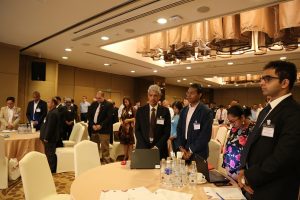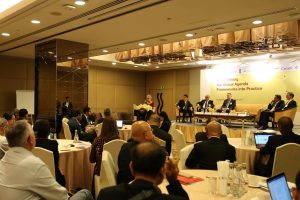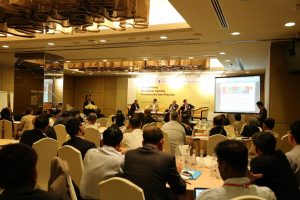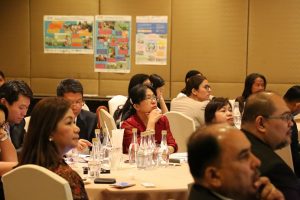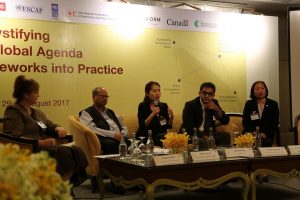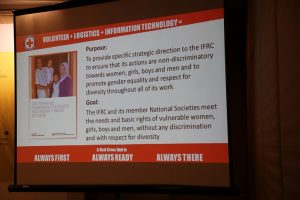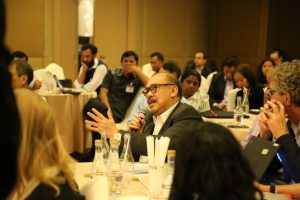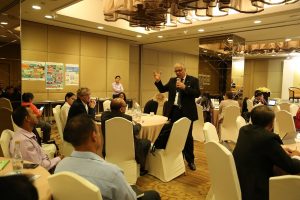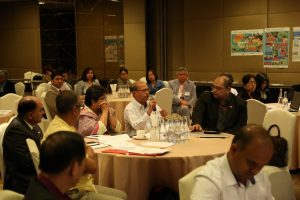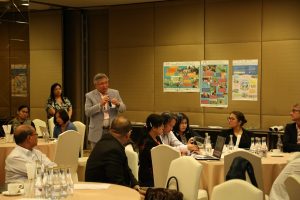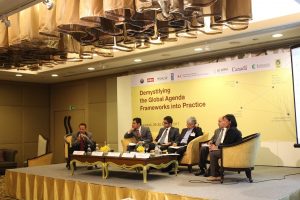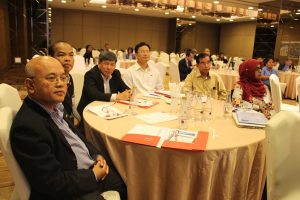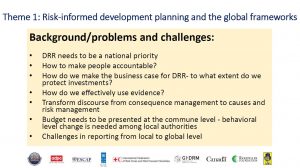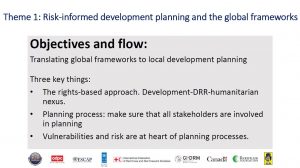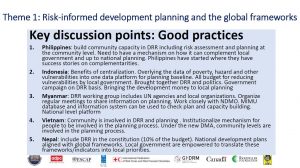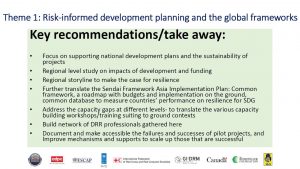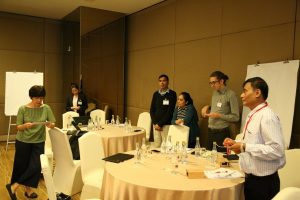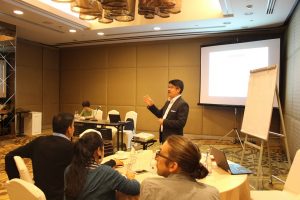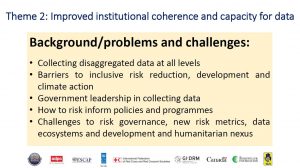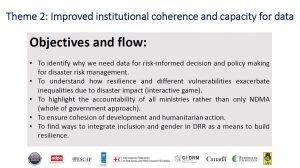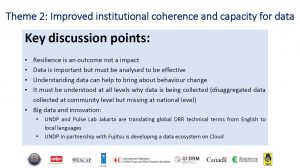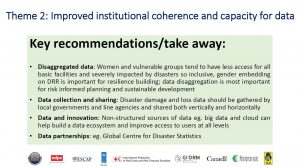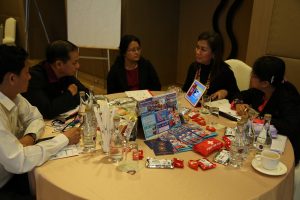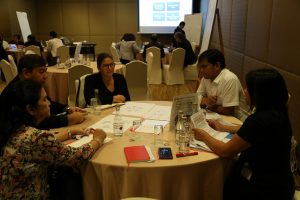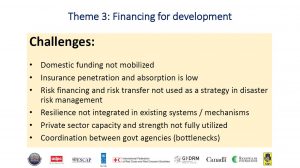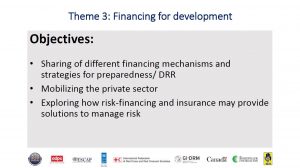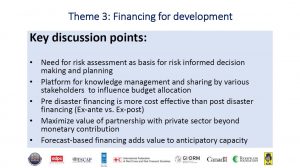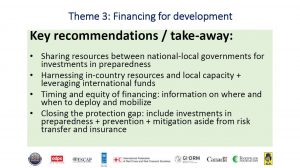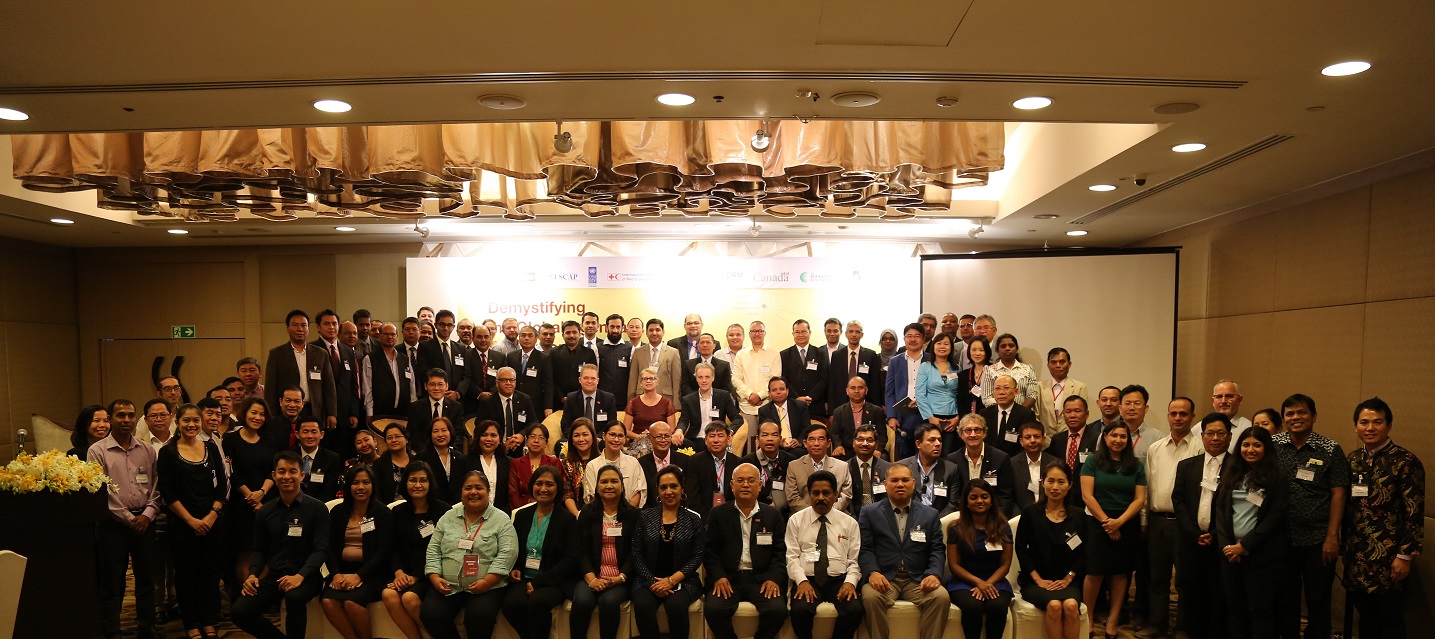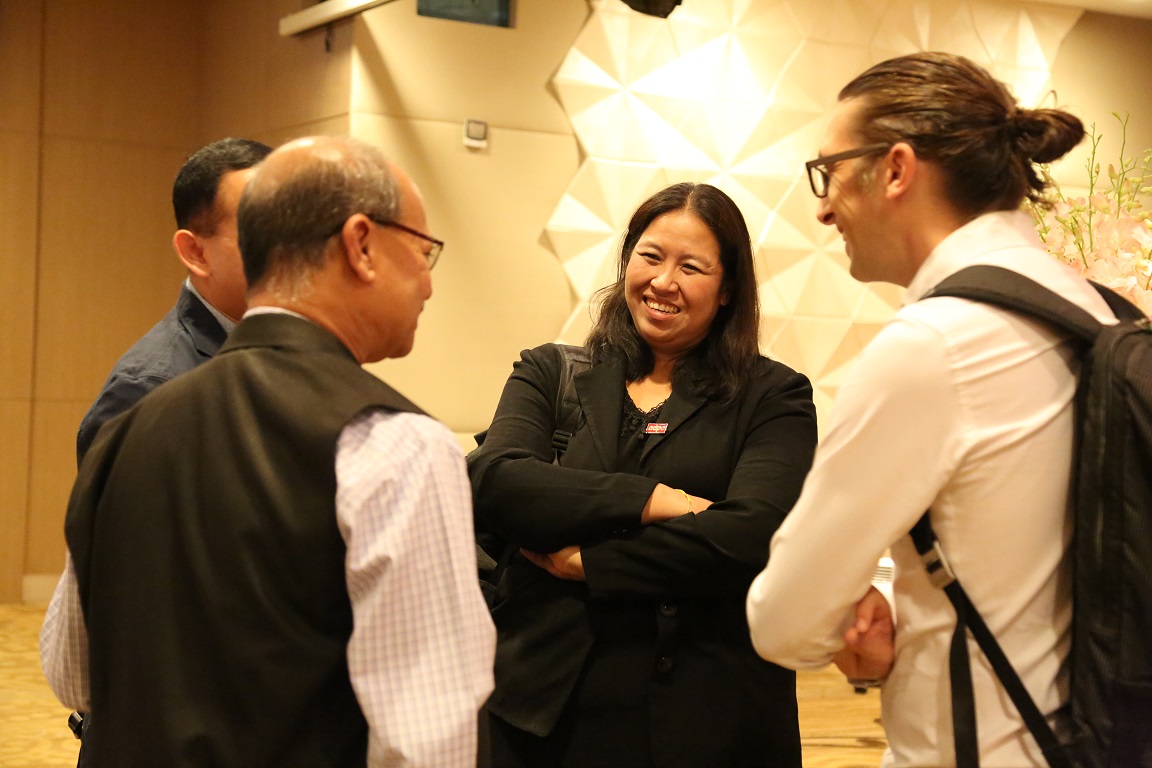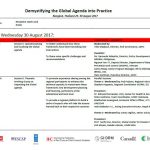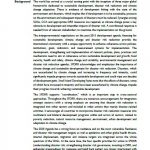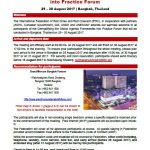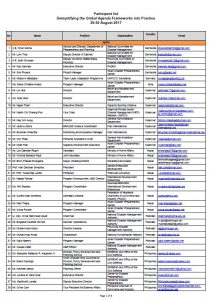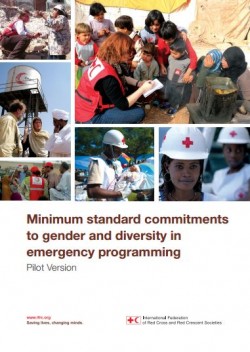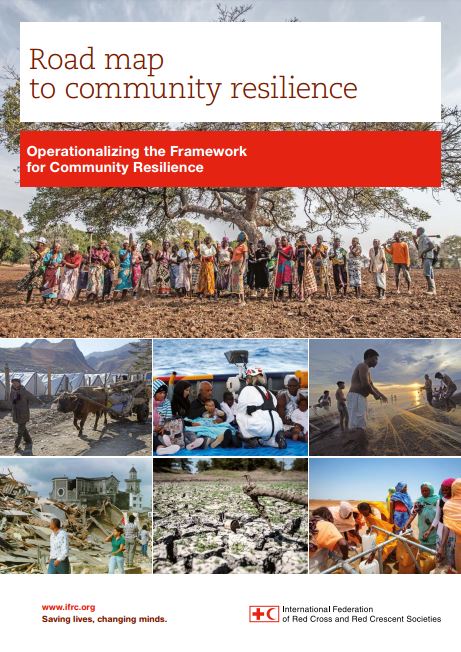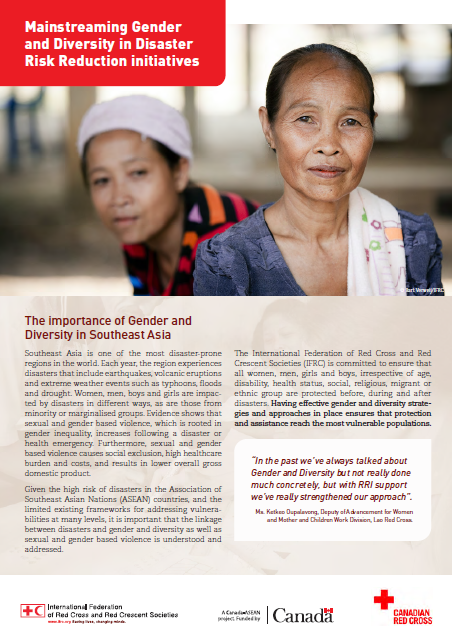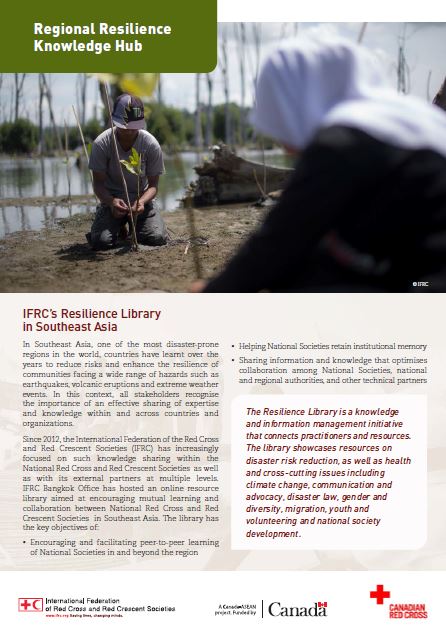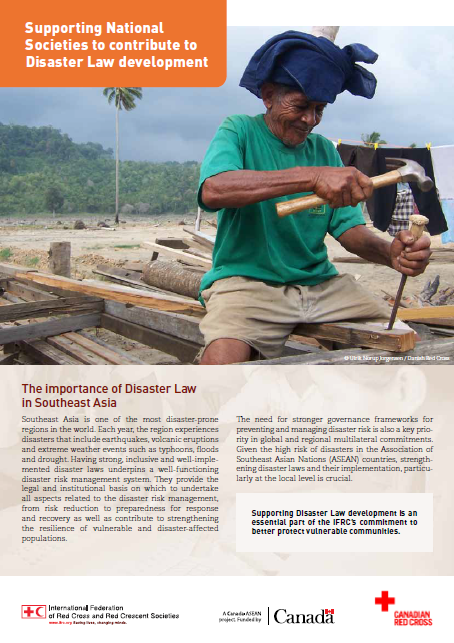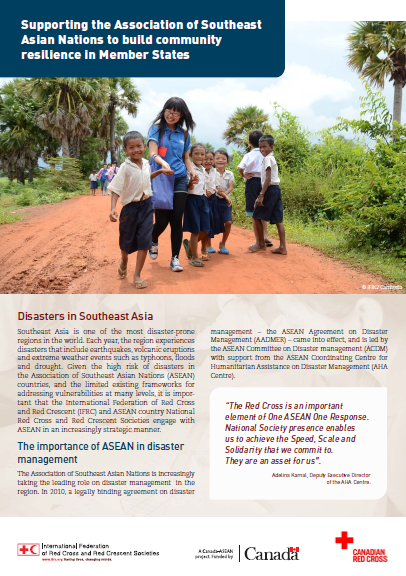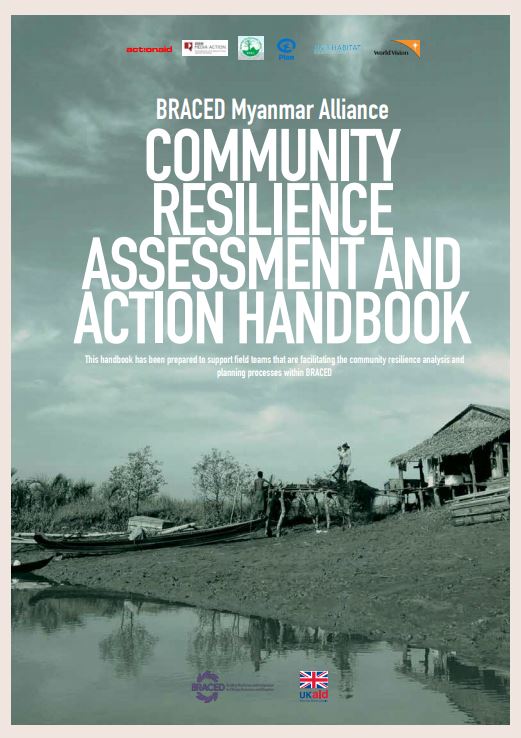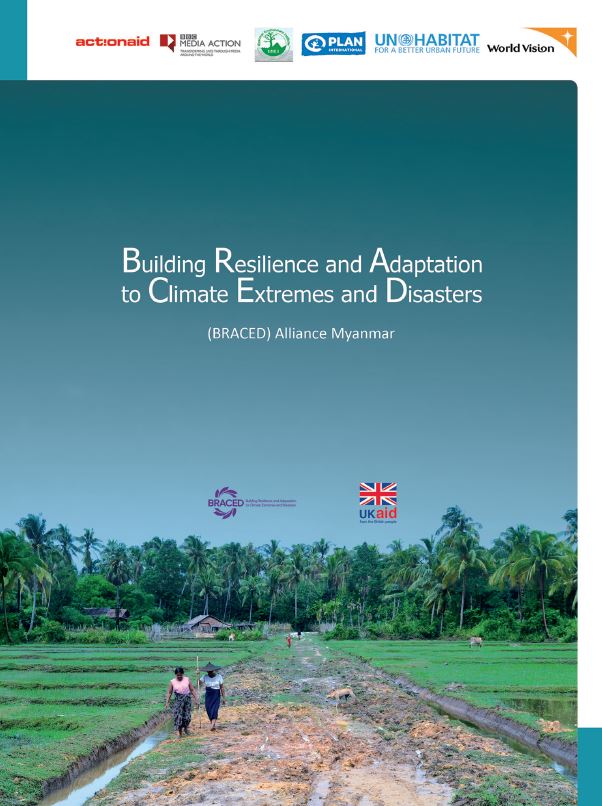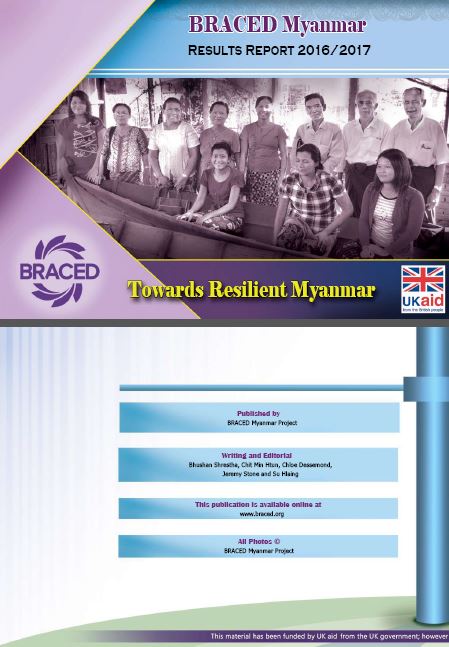
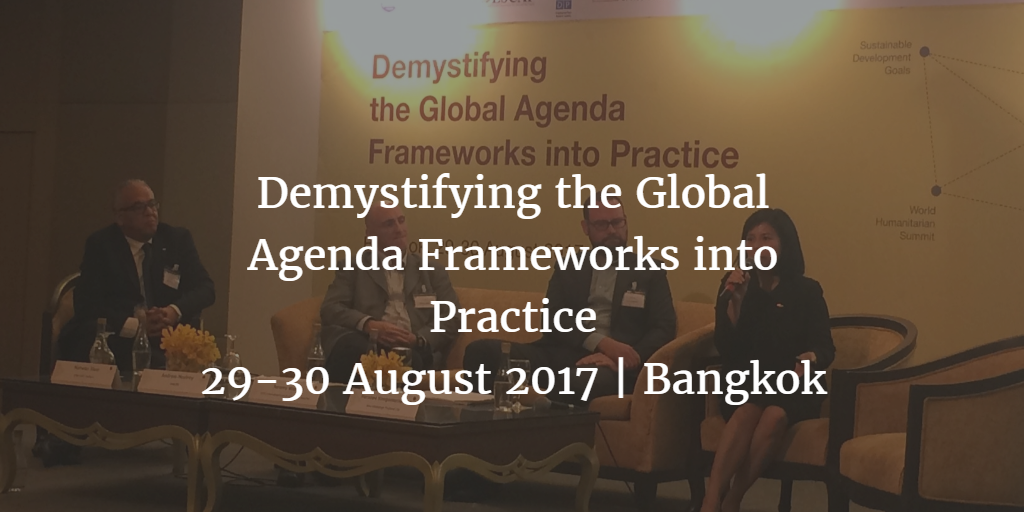
Significant progress has been made in disaster risk reduction, climate change adaptation, humanitarian response, and in development under the global frameworks that guide them. However, due to their respective mandates, government agencies have been working in silos towards reducing disaster and climate risks. The evolution of the global frameworks and creation of new ones calls for a universal and more comprehensive approach, which focuses on sustainability and resiliency. These global frameworks are considered as tools to support government agencies and relevant stakeholders on their progress towards sustainability and resiliency.
Asian Disaster Preparedness Center (ADPC), GIZ, UNESCAP, UNDP and the International Federation of Red Cross and Red Crescent Societies (IFRC) altogether in a partnership (partners), see this as an opportunity to develop a deeper knowledge on the key linkages within the global frameworks to ensure that the operationalization of these frameworks at the country- and local-level serves as a vehicle to bring about positive changes towards investment decisions and strengthened risk governance.
The partners aim to organize the event together with other partners, and bring all relevant stakeholders including governments, UN agencies, RCRC National Societies, Civil Society Organizations and the private sector to help guide an integrated and inclusive approach to building national and local resiliency capacities as an effective approach towards the implementation of global goals.
The 2-day forum aims to identify the challenges, linkages, and potential key entry points for integrating the Sendai Framework for Disaster Risk Reduction, the Sustainable Development Goals, Paris Agreement on Climate Change Adaptation, and the World Humanitarian Summit towards achieving a common goal of making communities resilient to disaster and climate risks in the Asia-Pacific region.
Objectives:
- Welcome remarks
- Introduction of workshop objectives, process and expected outputs
Moderated by: Sanny Jegillos, Senior Advisor DRR, UNDP and Hung Ha Nguyen, CSR Manager, IFRC
Welcome Remarks:
- Chainarong Vassanasomsithi, Director of Research and International Cooperation Bureau, DDPM
- Marwan Jilani, Head of CCST, IFRC
- Hans Guttman, Executive Director, ADPC
- Valerie Cliff, Deputy Assistant Administrator & Deputy Regional Director, UNDP Regional Bureau for Asia and the Pacific
- Sanjay Srivastana, Chief of DRR Section, ICT & DRR Division, UNESCAP
- Stephan Huppertz, Regional Coordinator GIDRM, GIZ
Key messages:
- Real progress is made on leaving no one behind. The idea that ‘no goal should be met unless it is met for everyone’ is well established in the rhetoric around the new goals.
- Following rights based approach is central to operationalizing the global agendas. Poverty increases disasters and disasters increase poverty. On top of this, disaster and poverty impact on women and girls is disproportionally high, while gender-based violence increases after disasters; as such the resulting resilience gap needs to be closed.
- Accurate data and evidence is key for good governance planning and programming: risk-informed decision making can only happen with available and accurate data. If development isn’t risk informed it won’t be sustainable.
- The global agenda is achievable through an integrated and collaborative approach: we need to work together to achieve the global ambition by widening the expert base, engaging private sector, ensuring innovative tools development. Engaging in multi-stakeholder collaboration is critical in building resilience and reducing climate and disaster risks at all levels.
- Working together is the only way forward to implement the agendas and support sustainable development.
Objectives:
- Overview of the state of implementation of global agenda frameworks at the regional level
- Overview of how goals and targets are mainstreamed at the policy and planning levels
- Sharing of some examples, case studies and lessons learned from the region
- Overview of challenges and opportunities.
Moderated by: Puji Pujiono, Regional Advisor, UNESCAP
Panelists:
- Brigadier Mukhtar Ahmed, Member of Operations, NDMA Pakistan (see presentation on National Disaster Management Pakistan)
- Ritola Tasmaya, Secretary General, Indonesian Red Cross
- Arief Ramadhian, Programme Development Specialist, UCLG-ASPAC (see presentation on the role of local governments)
- Motsomi Maletjane, Team Leader in the National Adaptation Plans and Policy Subprogramme, UNFCCC Secretariat (see presentation on promoting synergies between the sustainable development agenda and the climate change agenda)
Key discussion and outcome points:
- The various global development frameworks, while having varying focus, all hinge on common ends in the SDGs, which include resilience as a common thread.
- Challenges in the implementation of the global frameworks are how to find the coherence among them while maintaining the varying focus; how to translate the global principles to the development principles and programmes; and how to transform the principles into implementation from national to local levels.
- Key to address the challenges is the ability of the national planning agencies and authorities to leverage the global frameworks and to align them with national ambitions in one hand, and the resource’ framework in the other hand, to shape development priorities and then translate them into long, medium and short term plans and programmes; and to take every opportunity for implementation.
- Institutionalization of the global development frameworks require the internalization into national legislations, regulations and policies; assignment of formal roles among government ministries and agencies for planning, implementation and monitoring as well as monitoring and reporting at all levels.
- Working together is the only way forward to implement the agendas and support sustainable development.
Questions and Feedback:
- How to ensure that the global agenda are sustained throughout the change of political administration? Engage with the planning division of each line ministry to ensure consistency in development planning.
- How to engage with local government and ensure the integration of global frameworks in local plans?
- Adjust with incoming local political timeline.
- Enact an implementing framework (for example ministerial instruction) to impose integration and implementation of SDGs in local government plans.
- Engage with the local planning and technical team to highlight the roles of local governments in global agenda implementation.
Objectives:
- Overview of how gender and diversity are integrated into the global frameworks
- Sharing of examples, case studies, and lessons learned from the region
- To share progress on gender and diversity integration and programs
- To identify concrete action on implementation and further progress
Moderated by: Andrea Cullinan, Regional Advisor of Asia Pacific Gender-based Violence
Panelists:
- Norwina D. Eclarinal, Officer in Charge, Philippines Red Cross (see presentation on mainstreaming gender and disaster risk reduction)
- Asuka Murata, UN Women (see presentation in gender, diversity and disaster risk reduction)
- Edmond Fernandez, Center for Health &Development (see presentation on beyond man, women & the third gender – viewing gender and DRR through a public health lens)
- Madan Pariyar, BRACED Nepal (see presentation on BRACED/Anukulan experiences on mainstreaming gender and diversity into DRR and CCA in Nepal)
Key discussion and outcome points:
- Gender equality is recognized in all post-2015 global frameworks: Sustainable Development Goals (SDG), the Sendai Framework and the Paris Agreement. This clear narrative increases opportunities for promoting equality and inclusion in all community levels.
- Labelling women as vulnerable has excluded them from decision-making processes and rendered invisible their contribution to community resilience building at the grassroots level.
- Change of approach from the “women are vulnerable” to “women are key to achieving resilience/SDGs” is important. Women bring together families and communities, which is a key to strengthening social systems for sustainable development. Women are also stewards of natural resources and this positions them well to manage environmental realities. When women are engaged and needs are addressed, development and resilience processes have more impact.
- Women are diverse group and not homogenous, and this fact needs to be taken into consideration.
- Gender equality agenda needs transformative strategies and actions- we need to place women’s leadership at forefront of DRR and other development agenda, strengthen and apply strategic information and evidence i.e Sex and age disaggregated data (SADD), gender analysis, and implementation of gender-transformative development policies.
- Behavioral changes needed to achieve gender equality at a global, regional, national and local level, is a long-term process. Challenges include cultural barriers, social norms, underinvestment in women’s resilience, lack of capacity building, limited access to resources (financial and non-financial), lack of substantive leadership and participation in decision-making in the DRR and other development agenda.
- Inclusion of gender perspective and effective community participation are the areas where the least progress seems to have been made. Many countries do not compile sex and age disaggregated data (SADD) on vulnerability and capacity.
Objectives:
- To provide an overview of the mechanisms to which partnerships at different levels are supporting the implementation of the global agenda frameworks.
- To provide an overview of the available tools and mechanisms in support of local partnerships.
- To share experiences, practices and success stories of partnership engagement.
- To share examples and best practices in financing implementation at the local level.
Moderated by: Marwan Jilani, Head of CCST, IFRC
Panelists:
- Andrew Mcelroy, Communications Training & Gvt Relations, UNISDR
- Jeremy Wellard, Regional Representative for Asia, ICVA
- Poranee Kongamornpinyo, Head of Public Affairs, Dow Chemicals Thailand (see presentation)
Key discussion and outcome points:
- Partnership is inherently political. It may cause delay and frustration; however, it remains the best means to ensure participatory decision and actions, for larger and more sustainable impacts.
- In working towards the global agenda, multi-stakeholder partnerships are pivotal, we need more partnerships at national, regional and local levels.
- As the annual investment of private sector outweighs significantly that of public sector, it is vital to engage the private sector. Private sector often spearheads innovation. Examples of public-private engagement in DRR agenda in start-ups and social impact investing:
- Global United Fund for Disaster Risk Reduction – a US$100 million fund for private sector innovators to develop sustainable solutions for disaster resilience, pledged by a business federation representing more than 250,000 enterprises in India, launched in the lead up to AMCDRR 2016.
- Making cities resilient campaign – a campaign involving National governments, local government associations, international, regional and civil society organizations, donors, the private sector, academia and professional associations as well as every citizen to contribute to building disaster resilient cities. This campaign adopts the ‘knowledge’ and ‘can do’ attitude of the private sector.
- Dow Chemicals’ engagement with their employee volunteers, Thai Red Cross, vocational colleges and other companies showcases the success of a multi-stakeholder partnership led by a private company in supporting community resilience.
- Civil society organizations (CSOs) have strong added values to ensure impacts. We need to continue engaging the civil societies as active partners.
- It is important to explain the jargon of global agenda to the communities, for example by training the local leaders to be responsive to the global agenda in their own communities at local, regional and national levels.
- Good partnership requires mutual respect, transparency, accountability and clarity of roles.
- Meeting in the middle: striking the balance between bottom up and top down approaches. Communities are strong actors of change with initiatives on local levels, and it’s important to capture these significant contributions.
Objectives:
- To better understand how these frameworks have been translating into local actions
- To Share some specific challenges and recommendations
Moderated by: Irfan Maqbool, Director, Risk Governance, ADPC
Panelists:
- Dir. Bernardo Rafaelito, Director, Policy Development and Planning Service, NDRRM, Philippines (see presentation)
- Nguyen Van Vy, Deputy Director, Department of Natural Disaster Prevention and Control (DNDPC), Vietnam
- Carlos Mejia, Senior Program Manager, Bill & Melinda Gates Foundation (BMG), USA
- Hans Guttman, Executive Director, ADPC (see presentation)
Key discussion and outcome points:
- Partnerships are always important, however there is a cost in promoting partnership.
- Academia needs to be engaged as a part of a stronger and sustained multi-stakeholder partnership, to be achieved by building trust among these actors through making a space for regular knowledge sharing.
- Main challenges of implementing the global frameworks at the local level include the lack of capacity and resources in localization of indicators and other monitoring and reporting mechanisms. Therefore, it’s paramount to increase capacities of the local government units to promote and localize the global agenda; to conduct consultation to localize and prioritize indicators and to enhance reporting mechanisms.
- Another challenge is on coordination with disaster risk reduction and climate change adaptation are under different ministries.
- It is important to cascade relevant, practical and understandable information to local communities.
Objective:
The overall aim of this thematic session is to promote experience sharing among the regional participants to enhance the technical capacity to mainstream DRR into development planning and financing, particularly at the subnational level and to provide a regional platform to build a cadre of disaster and planning who will take the lessons learned back to their respective countries.
Part 1: Challenges and opportunities in operationalizing coherence through a disaster management lens (Facilitator: Puji Pujiono)
- Climate change and current initiatives in Nepal (Speaker: Indra Bahadur K.C., Nepal Red Cross Society)
- Philippine update: Ensuring safety and building up resilience (Speaker: Cynthia A. Villena, National Economic and Development Authority (NEDA) Philippines)
- Risk informed planning at sub-national level: planning, budgeting, and employing risk analysis, and contingency plans as avenues of mainstreaming DRR at sub-national level (Speaker: Alexander Armin Nugroho, Provincial Disaster Management Agency, Central Java, Indonesia)
- Data challenges and integration of data driven subnational planning (Speaker: Rajesh Sharma, UNDP)
- Integrating disaster risk informed planning at the sectoral level [health sector] (Speaker: Dr. Edmond Fernandez, Center for Health and Development Karnataka)
Part 2: Risk informed spatial planning (Facilitator: Stephan Huppertz)
- Suitability model – Risk informed decisions for planning and investment (Speaker: Antonio D. Balang Jr., GIDRM)
Part 3: Developing action plans for DRR: from global to local (Facilitator: Puji Pujiono)
- Establishing National Disaster Management Plans – integrating the global agenda (Speaker: Sofeenaz Hassan, National Disaster Management Centre, Maldives)
- Developing synergies across Disaster Management Plan, Development Planning, and Spatial Planning (Speaker: Rinto Andriono, UNDP)
- Approaches for assessing risks and losses from disasters: addressing SDG and Sendai Indicators (Speaker: Madhurima Swaisgood, UNESCAP)
Key discussions and recommendations:
Moderated by: Sanny R. Jegillos
Discussions:
- Coherence of Disaster Risk Reduction and Resilience in Implementation of 2030 Development Agenda (Speaker: Sanny R. Jegillos, UNDP)
- Global Centre for Disaster Statistics and World Bosai Forum/IDRC 2017 Sendai (Speaker: Yuichi Ono, Tohoku University)
Key discussions and recommendations:
Objectives:
- share experience and approaches in ensuring coherence in financing through regular budgetary processes at the national and local levels;
- discuss the wide array of non-traditional and/or external sources (national/international) available for timely local actions
- talk about how the private sector apply financial sustainability and contribute to the strategic directions of the country, through their business models
- explore how disaster risk financing and insurance and social protection mechanisms can offer solutions to some of the challenges posed by climate shocks and disasters, especially, as the frequency and intensity of these hazards rise due to climate change
Setting the scene presentation (by Thomaz Carlzon, IFRC)
Key discussions and recommendations:
Featured Photos
Supporting Documents
Agenda (download)
Concept note (download)
Practical information for participants (download)
Participant list (download)
Useful Links
|
Featured Videos
Marketplace (find some resources here)
- Minimum Standard Commitments to Gender and Diversity in Emergency Programming – Pilot Version
- Road Map to Community Resilience: Operationalizing the Framework for Community Resilience
- Case Study: Mainstreaming Gender and Diversity in Disaster Risk Reduction Initiatives
- Case Study: Regional Resilience Knowledge Hub
- Case Study: Supporting National Societies to Contribute to Disaster Law Development
- Case Study: Supporting the Association of Southeast Asian Nations to build community resilience in Member States
![]()


